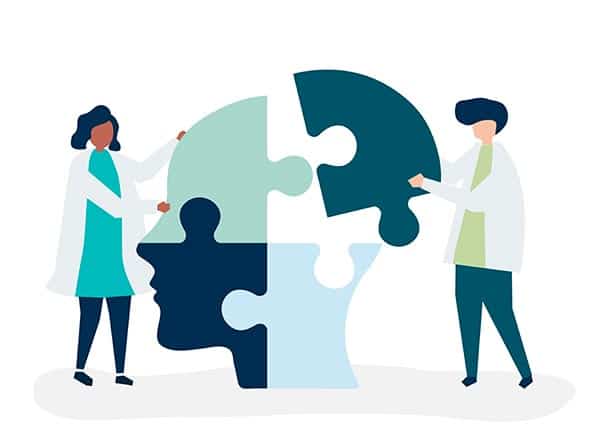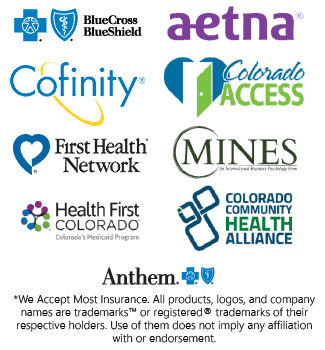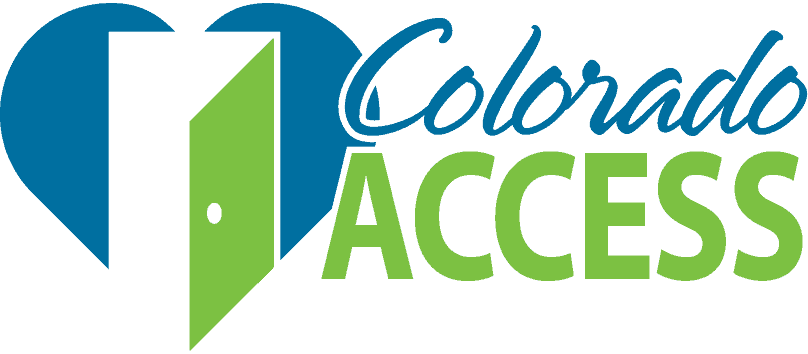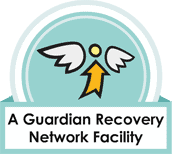Recovery for Co-Occurring Disorders
Dual Diagnosis Treatment
Dual Diagnosis Treatment
When a person struggles from a dual diagnosis disorder in the context of addiction treatment, it means they are struggling with a substance abuse disorder and an underlying mental health diagnosis. At CuraWest we specialize in dual diagnosis treatment options, providing each of clients with a combination of evidence-based behavioral therapies, holistic care and psychiatric services. Our team of industry professionals have combined decades of experience treating addiction and mental health, providing a program of recovery that focuses on more than a safe, pain-free withdrawal and a seamless transition into residential treatment. If you or someone you love has been struggling with a substance abuse disorder of any kind and a co-occurring mental health disorder, we are available to help. Contact us today to learn more about dual diagnosis treatment options in Denver, Colorado.
Why Mental Health Disorders & Addiction Co-Occur
Substance abuse and mental health disorders often go hand-in-hand. According to an article published by The National Alliance on Mental Illness, 9.5 million American adults experienced an addictive disorder and a mental illness in 2019. The National Institute on Drug Abuse states there are three main pathways which can contribute to the development of a dual diagnosis disorder.
Dual Diagnosis Pathways:
- A mental illness can drive a person towards substance abuse. In many cases the symptoms of an undiagnosed and untreated mental illness are extremely disruptive, and a person might turn to drugs and/or alcohol as a means of self-medication.
- Some chemical substances can lead to the development of a mental health issue. For example, someone who abuses methamphetamine for an extended period of time might develop paranoid delusions, and someone who abuses alcohol for years is at risk of developing a depressive disorder.
- Common risk factors lead to the development of addiction and mental illness. For example, someone who lives in an abusive household, has a high-stress career and has both alcoholism and depression in their immediate family is at high risk of developing both of these issues over time. Between 40 and 60 percent of a person’s vulnerability to addiction is attributed to genetic predisposition. The same goes for mental illness.
We Are Here For You
Let Us Help You Heal
Our Drug & Alcohol detoxification experience is second to none.
Learn how we can help by speaking with one of our Treatment Advisors today.
Diagnosing Mental Health Disorders
Getting sober is important for an accurate mental health diagnosis. It is difficult to tell exactly what is going on when a person has been using a chemical substance, seeing as the symptoms associated with addiction and withdrawal can mimic the symptoms of mental illness.

Dual diagnosis disorders can be very difficult to treat seeing as there is often significant overlap when it comes to symptoms. At CuraWest we help our clients work through a safe drug and/or alcohol withdrawal. Once they are physically stabilized we offer an in-depth psychiatric assessment to determine whether or not a co-occurring disorder is present. If a mental illness is present the client is then treated by one of our psychiatric professionals in the residential portion of pour treatment program. An appropriate, dual diagnosis-friendly aftercare plan is developed, and follow-up care is organized. Contact us today to learn more.
Our Drug & Alcohol Detox Services Include
Symptoms of Dual Diagnosis Disorders
The most common mental health concerns experienced by people in recovery for addiction are depression and anxiety.
Potential Symptoms of a Dual Diagnosis Disorder Include:
- Social isolation/withdrawing from friends and family
- Sudden and unexpected behavior changes
- An increase in risk-taking behaviors
- Self-medicating/feeling as if a chemical substance is necessary in order for function
- Developing a high tolerance for the substance, meaning a greater amount is required in order for the desired effect to be achieved
- Experiencing withdrawal symptoms when substance use is stopped
If a mental illness is not thoroughly addressed in an addiction treatment setting there is little chance of continued sobriety. In most cases, a person with a dual diagnosis disorder will benefit from transitioning into a dual diagnosis residential inpatient treatment facility when medical detox and residential treatment conclude. At CuraWest, as part of the Guardian Recovery Network, we work closely with several reputable dual diagnosis treatment centers throughout the country. Upon admission to our Denver, Colorado treatment center each client is assigned a case manager, who works directly with the clinical team to develop a personalized aftercare plan. Our main priority is setting each and every client up for success in recovery.
Ready To Begin Your Drug & Alcohol Detox?
We Offer A Safe & Effective Program
Don’t let Drug & Alcohol addiction control your life.
Call us today and let’s get you started on the path to a better you.
Our Dual Diagnosis Services
At CuraWest we offer a range of effective dual diagnosis services, including:
- Psychiatric Evaluations – Once the bodily system has been cleared of drugs and alcohol, and once the symptoms of acute withdrawal have predominantly subsided, a psychiatric professional conducts a personalized and in-depth assessment. This assessment helps the clinical team determine which treatment options are going to benefit each unique case the most. If a person comes to us with a mental illness which has already been diagnosed and treated, we determine whether or not the current medication plan is working. Adjustments to medication are frequently made once a person gets sober.
- Individual, Group and Family Therapy – In addition to antipsychotic medications, intensive psychotherapy is also beneficial (and typically necessary for long-term recovery). At CuraWest we believe in treating addiction at its core while addressing all underlying issues. We have several therapeutic professionals on staff who work one-on-one with clients, facilitate group therapy sessions and provide thorough family counseling services for the loved ones of our clients. Therapeutic care is an important component of every stage of treatment we currently offer.
- Aftercare Planning Services – For those struggling with dual diagnosis disorders, medical detox is often only the first step on the road to recovery. We encourage our dual diagnosis clients to transition into our residential treatment program once they have been physically stabilized. Our case managers work directly with clients and their families in order to make this transition as seamless as possible. If a client opts to go to a residential treatment center which is outside of our network we are more than happy to help organize that transition.
Maintaining mental health in early recovery is critical to the maintenance of sobriety. If a person fails to address underlying mental health concerns as they get sober, there is a good chance the symptoms of their mental illness will eventually lead them back to substance use. The opposite is also true; if a person seeks help for a mental illness and fails to address a co-occurring substance abuse disorder, they often skip medication, fail to show up to therapy and eventually find themselves right back where they started.
Begin Healing Now!
Have A Call With One Of Our Treatment Advisors
Don’t Suffer Any Longer
Begin Your Journey of Healing Today
Once you have made the decision to seek professional help, the hardest part of the journey is over. As soon as you contact us through our website or over the phone, our experienced and compassionate Treatment Advisors are available to begin developing a viable plan of action. First, we conduct a brief pre-assessment to determine whether or not dual diagnosis treatment is necessary. We then help you work through potential coverage options and organize local travel to our Colorado addiction treatment center. All you have to do is reach out and we will take care of the rest. However, we understand how difficult it can be to reach out for help. Many of our staff members have been exactly where you are now, or have helped a loved one through the early recovery process. Committing to recovery certainly isn’t easy for those who have been struggling with a severe addictive disorder — but it is always worth it in the long run. Contact us today to learn more or to get started with our admissions process.


















